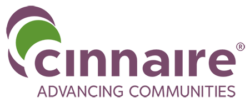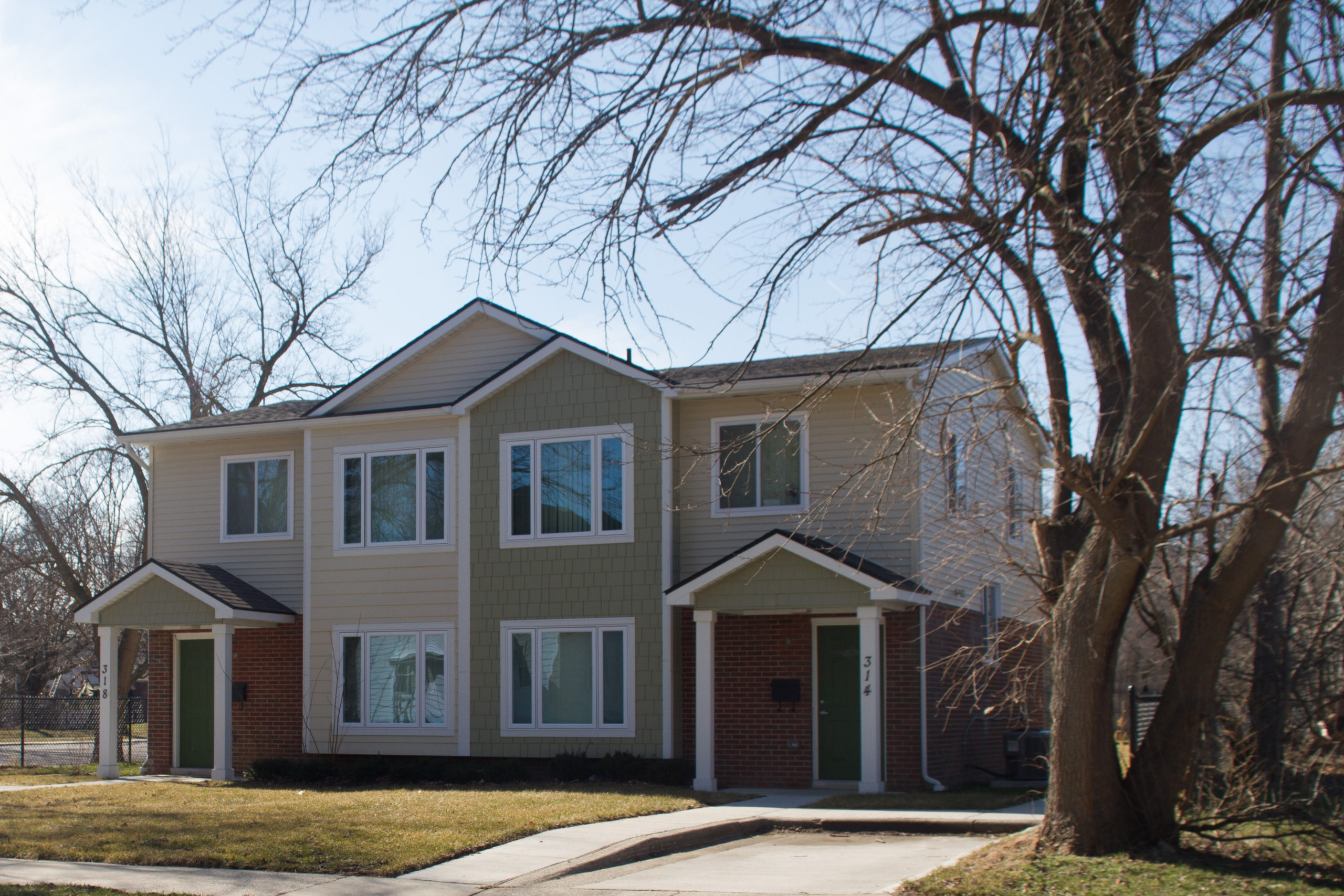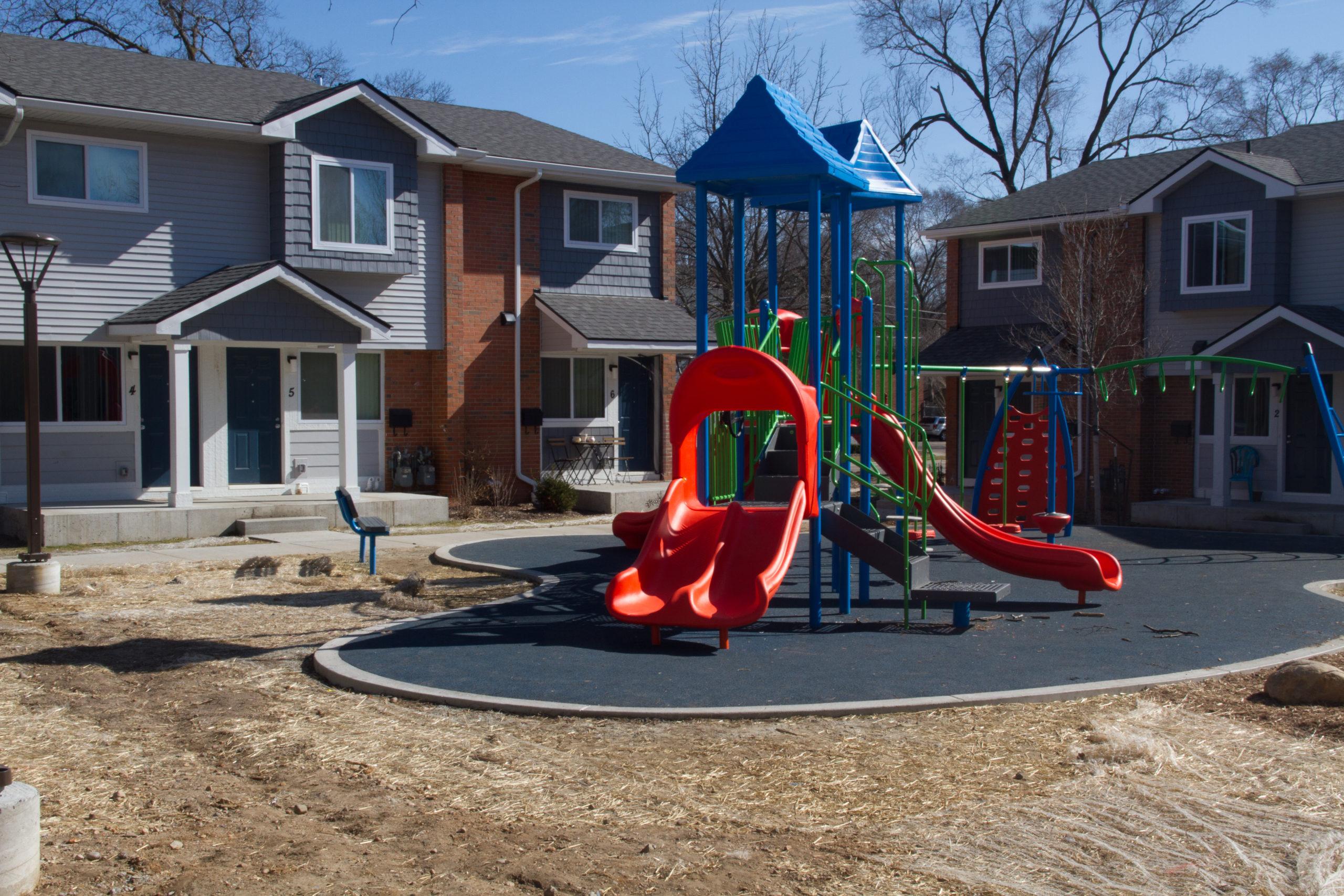Strong Families Fund
The primary goal of the Strong Families Fund is to demonstrate the value of Resident Services Coordination in improving outcomes across a range of areas of well-being for tenants in affordable housing developments. In addition, the SFF Initiative seeks to identify interested investors and potential resources to support Resident Services Coordination in future developments.

Strong Families Fund Finances Affordable Housing & Support Services
Cinnaire has committed to providing a Low-Income Housing Tax Credit (LIHTC) investment to develop Deborah Strong Housing, the first project in the Strong Families Fund (SFF), a ten-year pilot to finance social service coordination and affordable housing for low-income families.
The SFF initiative builds on the model that combining safe, affordable housing with intensive, supportive services serves as a platform to increase housing stability, create economic mobility and improve health outcomes for people and the communities in which they live.
The program is supported through a collaborative partnership among Kresge Foundation, the Robert Wood Johnson Foundation, Cinnaire, Corporation for Supportive Housing (CSH), National Affordable Housing Trust, Key Bank, Goldman Sachs and the Community Development Trust.
SFF uses a pay for performance model to incentivize data collection, track property maintenance and resident outcomes, and to engage mainstream systems and funders in the scaling and sustainability of the program. The fund combines federal LIHTC funding for capital development with the pay-for-performance model to provide access to up to 10 years of incentive payments to housing developments.
In return, developments must provide an on-site social service coordinator focused on improving resident and property outcome measures in five areas, including health and wellness; children and youth; housing stability; education; and community engagement.
Multiple studies have cited improved outcomes for families and children when high-quality affordable housing is paired with distinct links to services. Research shows housing connected with support services may also lead to a reduction in public-sector costs. The SFF brings together affordable housing developers and investors with focused interests like health, justice, education, as well as other mainstream funders to address their shared goals of supporting housing stability, creating economic prosperity and improving quality of life in order to achieve healthier outcomes for families and communities.
Deborah Strong Housing Project Empowers Ypsilanti Residents
Our Locations
Lansing
1118 South Washington
Lansing MI, 48910
Indianapolis
201 North Illinois Street
Suite 1530
Indianapolis IN, 46204
Wilmington
100 W. 10th Street, Suite 502
Wilmington, DE 19801
Chicago
225 West Washington
Suite 1350
Chicago, IL 60606
Madison
10 E. Doty Street, Suite 617
Madison, WI 53703
Grand Rapids
100 Cesar E. Chavez Ave.
Suite 202
Grand Rapids, MI 49503
Detroit
2111 Woodward Avenue, Suite 600
Detroit, MI 48201


